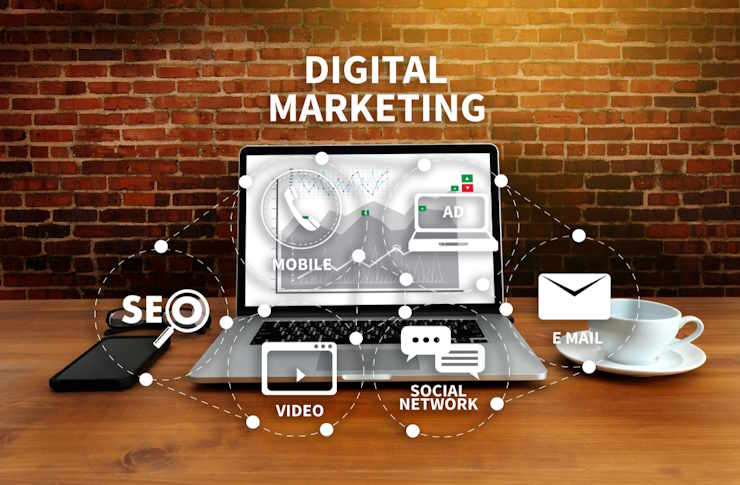Upgrade Your Marketing Skills Online in Indonesia
Indonesia’s digital economy is expanding quickly, and marketing roles now demand cross-channel skills in search, social, content, analytics, and ads. Online learning makes it possible to build these competencies around a busy schedule. This guide shows how to choose structured courses, practice with local scenarios, and assemble a portfolio that reflects job‑ready capability.

For marketers in Indonesia, the path to growth is increasingly digital. Brands compete on mobile, social video, and marketplaces, and teams need practical skills they can apply immediately. Studying online offers flexibility without sacrificing structure: you can learn after work, practice on real tools, and progress from fundamentals to advanced topics at a manageable pace in your area.
Improve Your Marketing Skills Online and Advance Your Career
Building a solid foundation starts with core disciplines that work together. Search engine optimization strengthens organic visibility, while paid media extends reach to precisely targeted audiences. Content marketing shapes brand voice, and email nurtures long-term relationships. Analytics ties everything together by translating activity into measurable performance, from traffic and conversion rates to customer lifetime value.
In Indonesia, context matters. Mobile-first habits, Bahasa Indonesia content quality, and culturally relevant campaigns can significantly improve results. Consider how your audience shops across marketplaces and social commerce, and how customer service often happens via chat. When you learn online, choose modules that include local case studies, such as festive season campaigns, product launches for price-sensitive segments, or strategies for regions with varying internet speeds.
Practical outcomes are essential. As you study, create small projects that mirror daily tasks: audit a website’s on-page SEO, draft a three-part email sequence, set up a basic analytics dashboard, or design a brief for a short-form video. These artifacts become a portfolio that communicates your growing capability to hiring managers and clients.
Online Marketing Course: Boost Your Skills and Career Fast
Different course formats suit different goals. Self-paced modules are flexible and help you master specific tactics quickly. Cohort-based courses add structure, deadlines, and peer discussions that simulate a team environment. Bootcamp-style programs are intensive and often conclude with capstone projects that showcase practical, job-aligned skills.
When choosing a program, look for clear learning outcomes, hands-on assignments, and feedback opportunities. Instructor expertise should be visible through real examples and frameworks, not just theory. Check whether lessons include Indonesian market nuances—language usage, mobile landing page optimization, local services, and marketplace analytics—so what you learn transfers directly to your day-to-day work.
Certificates can support your professional profile, but the depth and relevance of your projects usually carry more weight. Review the assessment style: do you complete real briefs, analyze actual campaign data, or run small ad experiments with safety limits? Also consider time commitment, access duration, and community support. A helpful discussion forum or mentor check-in can accelerate progress and keep motivation high.
Learn Marketing Online and Take Your Career to the Next Level
Create a structured learning path that balances breadth with depth. Start with fundamentals—strategy, customer research, analytics—then specialize in one or two channels where you can deliver quick wins, such as search ads, social content, or email automation. Add complementary skills like conversion rate optimization, copywriting, or basic design to improve execution quality.
To convert learning into measurable outcomes, plan a 6–8 week practice cycle: - Week 1–2: Audit a brand’s digital presence and define KPIs aligned to business goals. - Week 3–4: Build one channel end-to-end (for example, an SEO content cluster or a paid campaign with clear targeting and creative variants). - Week 5–6: Implement analytics, A/B testing, and reporting cadence. - Week 7–8: Present findings, reflect on results, and iterate on the next sprint.
Local relevance strengthens your work. Adapt messaging to Indonesian audiences, test Bahasa Indonesia and bilingual content, and optimize for mobile data conditions. Learn how to use chat-based customer touchpoints, prepare for peak seasons, and align with common payment behaviors in ecommerce. Keep an eye on data protection and advertising guidelines to maintain ethical practices while you experiment.
Finally, document everything. Write short case studies that outline the objective, strategy, tactics, metrics, and learnings. Include screenshots of dashboards (with sensitive data removed), campaign structures, and content examples. Over time, this portfolio demonstrates a consistent ability to connect marketing activity to business results, which is precisely what helps professionals move into larger responsibilities and leadership roles.
Conclusion Upgrading marketing skills online in Indonesia is most effective when you combine structured learning with consistent practice on real tasks. Focus on fundamentals, specialize strategically, and build local context into every project. With a clear plan, practical assignments, and ongoing reflection, online study can translate into meaningful career progress and stronger outcomes for the organizations you support.




